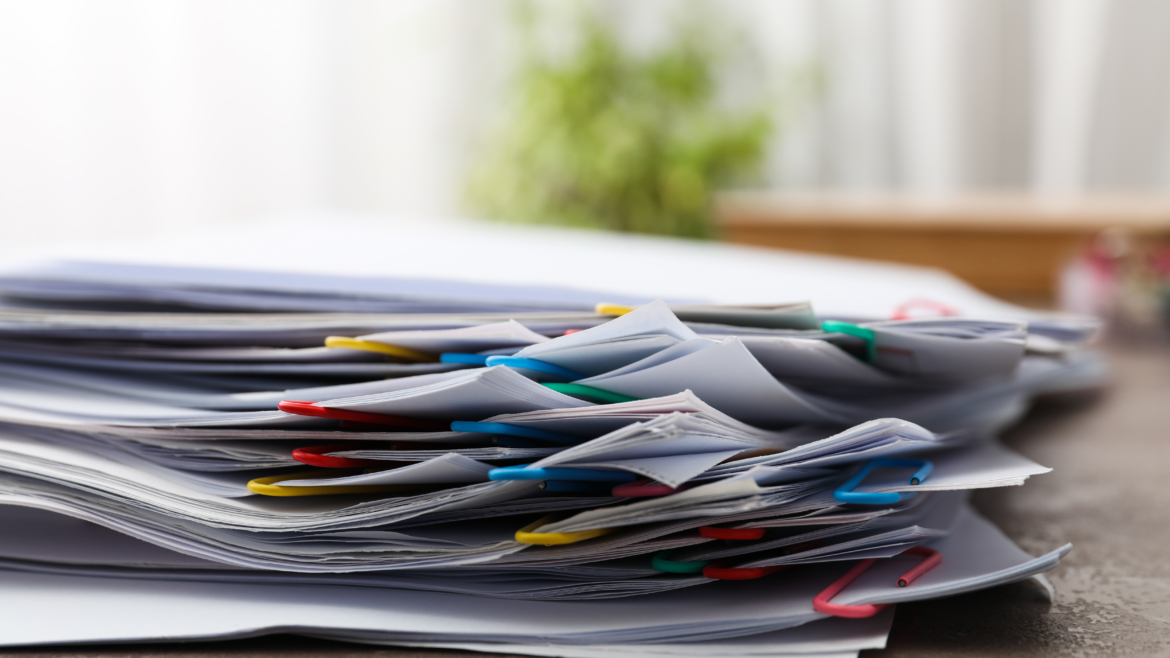Preparing for a divorce can be an overwhelming process – especially when it comes to gathering the necessary paperwork. This guide will help you understand what documents you need and how to organise them effectively.
By being well-prepared, you can streamline the divorce process and potentially save time and money.
Having all your documents in order also gives you a clearer picture of your situation, which can be invaluable when making important decisions.
Financial Documents
Start by collecting all relevant financial documents. Having a clear picture of your financial situation is crucial for fair asset division and potential spousal maintenance calculations. Also, it’s important to be mindful of hidden assets. These typically include:
- Bank statements for the past 12 months
- Credit card statements
- Mortgage documents or rental agreements
- Payslips and P60 forms
- Tax returns for the past three years
- Pension statements
- Investment account statements
- Documentation of any debts or loans
Property and Asset Information
Gather documents related to your property and assets. These documents will help determine the total value of your marital assets for equitable distribution.
- House deeds or lease agreements
- Vehicle registration documents
- Valuations of high-value items (e.g., jewellery, art, antiques)
- Business ownership documents, if applicable
Personal Identification Documents
Ensure you have copies of essential personal documents. These documents may be required for various legal procedures during the divorce process.
- Birth certificates for you and any children
- Marriage certificate
- Passport
- Driving licence
Child-Related Documents
If you have children, collect the relevant paperwork. This information will be vital if child arrangements need to be determined as part of the divorce proceedings.
- School records
- Medical records
- Child benefit information
- Any existing custody or visitation agreements
Other Legal Documents
Gather any existing legal documents that may be relevant. These documents can significantly impact the divorce proceedings and outcomes.
- Prenuptial or postnuptial agreements
- Previous court orders or judgments
- Separation agreements
- Wills or trusts
Organising Your Paperwork
Once you’ve gathered all the necessary documents, it’s time to organise them effectively. Create a filing system, either physical or digital, that works for you. This might involve using folders, binders, or cloud storage solutions.
Make copies of all important papers. Keep one set for yourself and prepare another for your solicitor.
Store the originals in a secure location, such as a safe deposit box or a locked filing cabinet at home.
Consider using a spreadsheet to track and summarise financial information. This can be particularly helpful for complex financial situations.
Being organised will help you and your solicitor navigate the divorce process more efficiently. It can also reduce stress by giving you a sense of control over the situation.
Final Thoughts
Gathering the right paperwork for your divorce may seem daunting, but it’s a crucial step in ensuring a fair and smooth process. Following this guide and consulting with your solicitor will prepare you to move forward with your divorce proceedings.
Remember, thorough preparation can lead to better outcomes and potentially reduce the stress and duration of the divorce process.
While collecting and organising all these documents may take time and effort – doing so will ultimately serve you well as you navigate this challenging life transition.
If you’re unsure about any aspect of document gathering, don’t hesitate to seek advice from your solicitor. They can provide guidance specific to your situation and ensure you haven’t overlooked any crucial paperwork.



